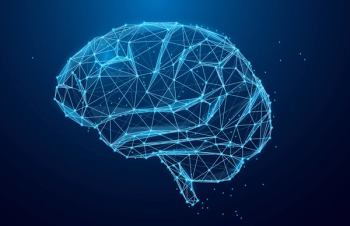
The Week in Review: August 14-18
From the brain-gut connection to neurocognitive and neuropsychiatric symptoms of long COVID, here are highlights from the week in Psychiatric Times.
This week, Psychiatric Times® discussed a wide variety of psychiatric issues and industry updates, from the brain-gut connection to neurocognitive and neuropsychiatric symptoms of long COVID. Here are some highlights from the week.
Persistent Neurocognitive and Neuropsychiatric Symptoms Post-COVID
Although COVID-19 is primarily a respiratory virus, it also affects other organs and systems in the body, including the nervous system. The mechanisms of injury to the brain and nervous system include chronic inflammation, changes in the integrity of the blood-brain barrier, hypoxia, and coagulopathies resulting in the formation of blood clots. Long COVID and other terms, such as long haulers or post-COVID syndrome, have been used to describe symptoms persisting beyond 12 weeks that cannot be explained by another condition.
Some individuals with long COVID report ongoing or continuous symptoms experienced during initial infection, whereas others report the onset of new symptoms not experienced during initial infection, or continuous remitting and relapsing of symptoms.
The Gut-Brain Connection: An Upcoming Study on Psilocybin-Assisted Psychotherapy and Irritable Bowel Syndrome
The US Food and Drug Administration (FDA) recently gave confirmation for Tryp Therapeutics to proceed with its phase 2A trial at Massachusetts General Hospital investigating psilocybin-assisted psychotherapy in the treatment of adult patients with irritable bowel syndrome (IBS). We sat down with Tryp’s CSO, Jim Gilligan, PhD, MBIS, to learn more.
PT: Patients with IBS experience abdominal pain and other debilitating gastrointestinal (GI) symptoms. Can you speak a little about how psilocybin-assisted psychotherapy might help relieve those symptoms?
Gilligan: The primary clinical efficacy endpoint in our upcoming IBS study is abdominal pain and visceral tenderness. This type of pain can be thought of as “learned or memorized pain” whereby the pain sensation originates from a neural loop in the brain. It is also interesting to note that approximately 35% of patients with IBS also have fibromyalgia—another chronic nociplastic pain condition.
Creativity Outlets: The Clinician’s Battery for Recharging
Psychiatry is a unique field for many reasons, but largely because it deals with gray space. Compared with other fields, our diagnoses rely more on subjective measures. We cannot diagnose schizophrenia with a blood test or obsessive-compulsive disorder by imaging. Numbers can only tell us so much in psychiatry. On the other hand, that ambiguity naturally lends itself to a story, and creativity is all about telling a story.
In psychiatry, the diagnosis is always tied to the human element. It may be simple to be cut and dry (clinical) when addressing someone’s high blood pressure, but it is different when a patient tells you their darkest secrets and greatest shames that are tied to their disorder. Mental illness colors an individual’s entire life. Again, numbers don’t come close to encapsulating an individual’s life, but stories can and do.
What Are Best Practices for Psychiatrists When Serving As Expert Witnesses?
Although a “fact witness” is constrained to testify only to what was observed by the 5 senses, the “expert witness” is permitted to draw inferences and conclusions from other sources—hospital records, other experts’ examinations, basic principles, and so on.
In a given context, a fact witness may testify, “I saw the defendant run through a red light,” whereas an expert might testify, “This doctor’s treatment of the plaintiff fell below the standard of care of the average prudent physician, causing the damage described.” The expert serves as a consultant to the court and offers opinions on subject matters that are beyond the scope of knowledge of the jury.
See more recent coverage from Psychiatric Times
Do you have a comment on any of these or other articles? Have a good idea for an article and want to write? Interested in sharing your perspectives? Write to us at PTeditor@mmhgroup.com.
Newsletter
Receive trusted psychiatric news, expert analysis, and clinical insights — subscribe today to support your practice and your patients.







